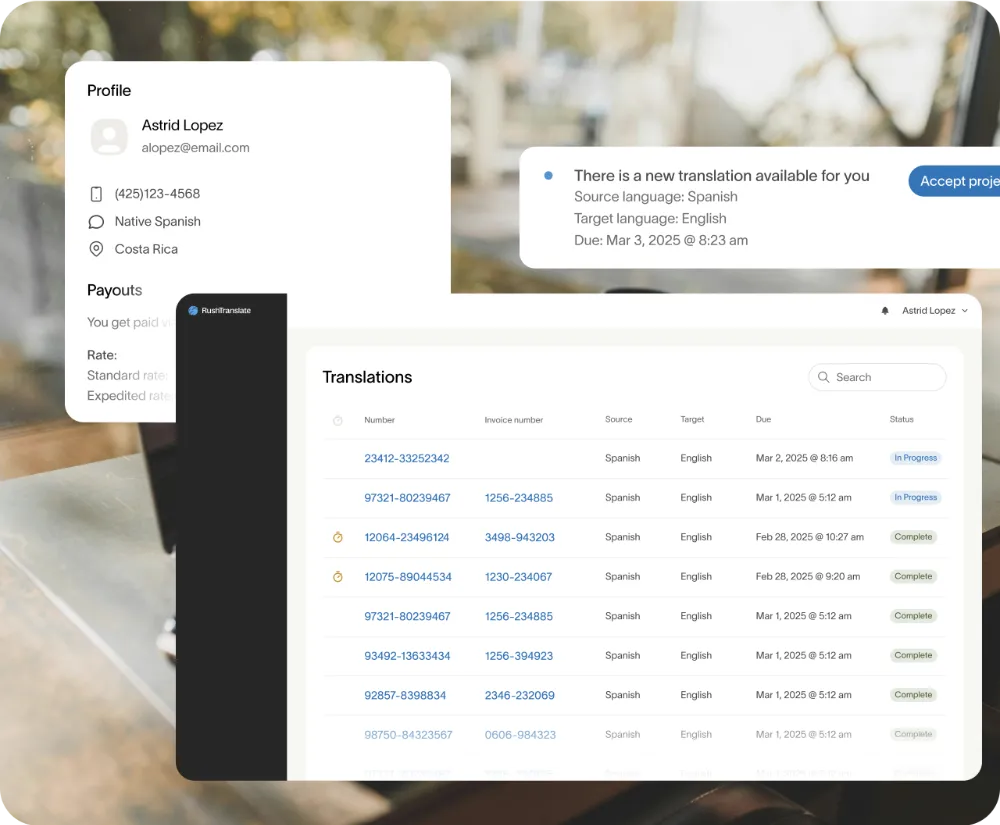Join our translation team
Work with a company that values your expertise, rewards reliability, and provides a steady flow of projects—so you can focus on translating, not job hunting. At RushTranslate, we build long-term relationships with our translators, offering direct project assignments, on-time payments, and a hassle-free workflow.
If you're a skilled translator looking for a professional and dependable team, we'd love to have you on board.

